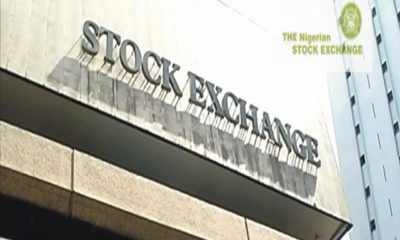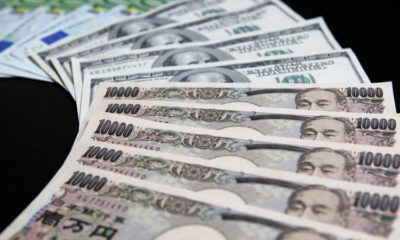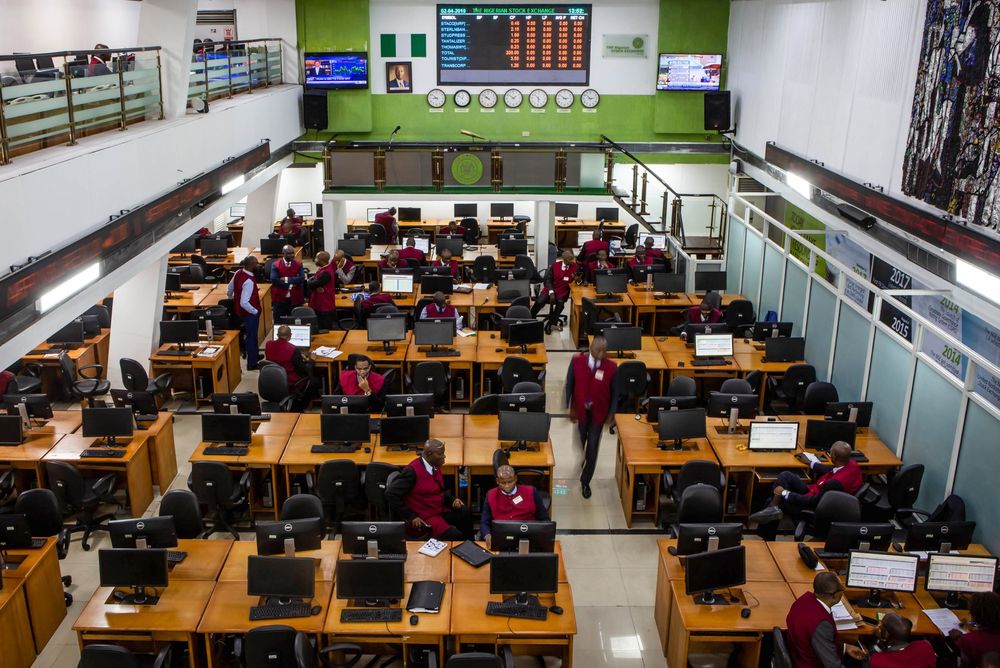11 blue-chip companies out of the 155 listed on the Nigerian Exchange Limited (NGX) have emerged as dominant players in the equities market for the first eight months of 2023, growing their market value by 79.2 percent.
These standout companies comprise Dangote Cement Plc, MTN Nigeria Communication Plc, Airtel Africa Plc, BUA Cement Plc, BUA Foods Plc, and Guaranty Trust Holding Company Plc (GTCO). Others include Zenith Bank Plc, Seplat Energy Plc, Nestle Nigeria Plc, Stanbic IBTC Holdings Plc, and Geregu Power Plc.
To put it in perspective, the combined value of these 11 companies amounted to N28.849 trillion as of August 31, 2023, representing 79.2 percent of the total market value of N36.423 trillion.
The performance of the Nigerian stock market in 2023 can be attributed to various factors, including the favorable foreign exchange policies implemented by President Bola Tinubu, the removal of fuel subsidies which has attracted increased foreign investor participation, and impressive corporate earnings reported by listed companies.
According to investigations, Dangote Cement has outpaced MTN Nigeria and Airtel Africa, claiming the title of the most valuable stock on the Exchange due to its significant price appreciation during the first eight months of 2023.
Dangote Cement, the Nigerian cement giant, leads the pack with a valuation of N6.13 trillion as of the end of August 2023.
The stock price of Dangote Cement surged by an impressive 37.9 percent, reaching N360 per share by August 31, 2023, from its opening price of N261 per share earlier in the year.
MTN Nigeria also saw significant gains, with its stock price rising by 27.67 percent to close at N274.5 per share on August 31, 2023. MTN Nigeria is presently valued at N5.76 trillion in market capitalization.
In third place among the most valuable companies stands Airtel Africa, boasting a market capitalization of N4.96 trillion as of August 31, 2023. However, the stock price of Airtel Africa faced a 23.5 percent depreciation, settling at N385 per share in August 2023 from N1,635.00 per share at the close of 2022.
Tajudeen Olayinka, Managing Director of Wyoming Capital and Partners, noted that exchange rate volatility had a negative impact on Airtel Africa’s stock, primarily due to its operations in multiple jurisdictions and cross-border listings, which made it sensitive to exchange rate fluctuations affecting earnings and prospects.
According to him, “Airtel Africa renders services to customers in different jurisdictions and enjoys multiple listing across borders, and so, its share price readily reacts strongly to exchange rate volatility across borders, especially, as it affects earnings and earnings prospect.”
The recent devaluation of the Naira further exacerbated Airtel Africa’s challenges as the company announced that it would impact its derivative instruments and financial metrics significantly.
In a move to streamline operations, the Central Bank of Nigeria (CBN) recently introduced changes to the Nigerian Foreign Exchange (FX) Market, including the abolishment of segmentation and the reintroduction of the ‘Willing Buyer, Willing Seller’ model at the Investors and Exporters (I&E) window.
Notably, Guaranty Trust Holding Company Plc (GTCO) emerged as the most valuable bank on the NGX, surpassing Zenith Bank and Stanbic IBTC Holdings.
GTCO’s market capitalization closed at N1.08 trillion on August 31, 2023, while its stock price closed at N36.7 per share, a significant increase from the N23.00 per share it closed at in 2022.
GTCO also reported historical profit before tax of N327.40 billion in the audited half-year ended June 30, 2023, a 2217.09 percent increase from N103.25 billion reported in the prior half-year ending June 30, 2022.
Similarly, the Group declared N280.48 billion profit after tax in H1 2023, marking a 261.63 percent increase from N77.56 billion reported in H1 2022.
Meanwhile, Zenith Bank and Stanbic IBTC boasted market capitalizations of N1.03 trillion and N842.2 billion, respectively, as of August 2023. Zenith Bank’s stock price closed at N32.90 per share, significantly up from N24.00 per share in 2022, while Stanbic IBTC nearly doubled, closing August 2023 at N65.00 per share compared to N33.45 per share in 2022.
Analysts attribute this growth to the anticipation of robust dividends for the 2022 financial year and the solid fundamentals of Zenith Bank and other banks. They highlight that GTCO’s diversification into a holding structure is also contributing to its success.
David Adnori, Vice President of Highcap Securities Limited, emphasized that GTCO’s early filing of 2022 financial results, dividend payouts to shareholders, and its holding structure have positively impacted its performance. However, he noted that GTCO’s stock price is still undervalued on the Exchange.
According to a report by analysts at Coronation titled “Nigerian Banks: A Year of Resilience and Grit,” Nigerian banks are seen as attractive investments due to their discounted valuations compared to their peers and attractive dividend yields. Despite challenges such as stringent regulations, high inflation, and currency shortages, the report anticipates modest earnings growth driven by rising interest rates, non-interest revenue from FX revaluation gains, nonbank businesses, and digital banking.


 Forex3 weeks ago
Forex3 weeks ago
 Naira3 weeks ago
Naira3 weeks ago
 Billionaire Watch3 weeks ago
Billionaire Watch3 weeks ago



 Naira3 weeks ago
Naira3 weeks ago






 Naira3 weeks ago
Naira3 weeks ago




 Naira2 weeks ago
Naira2 weeks ago






 Naira2 weeks ago
Naira2 weeks ago




 Naira4 weeks ago
Naira4 weeks ago






















